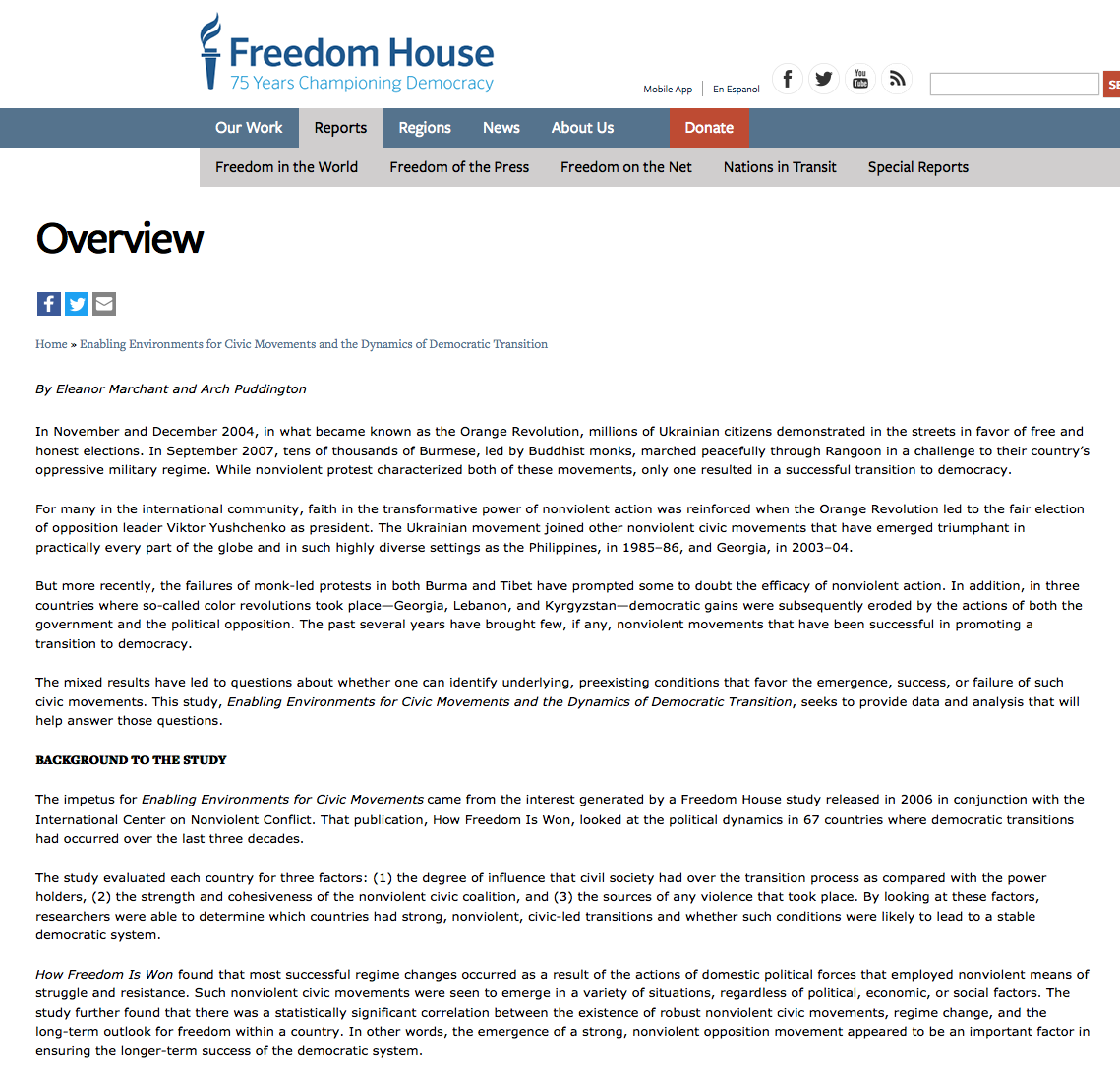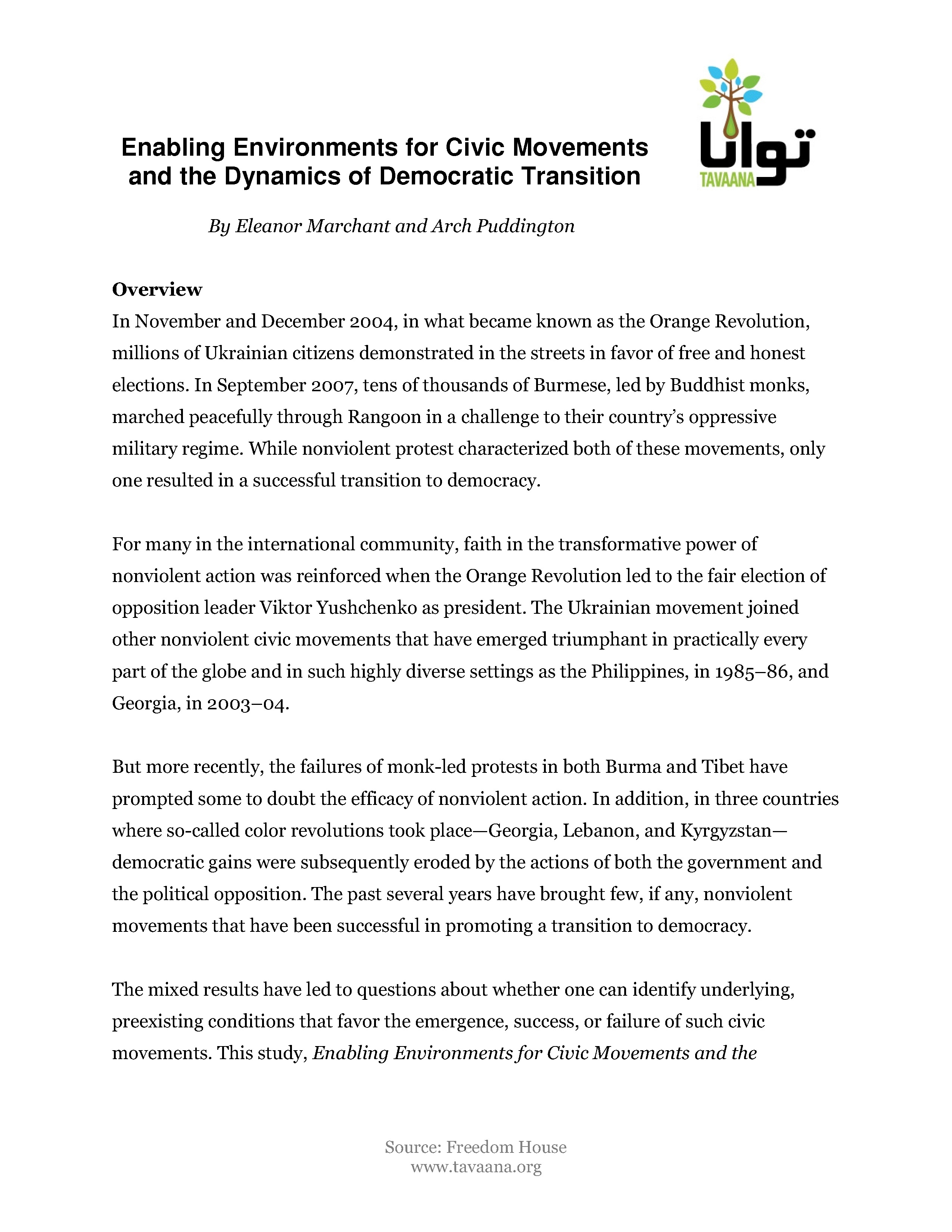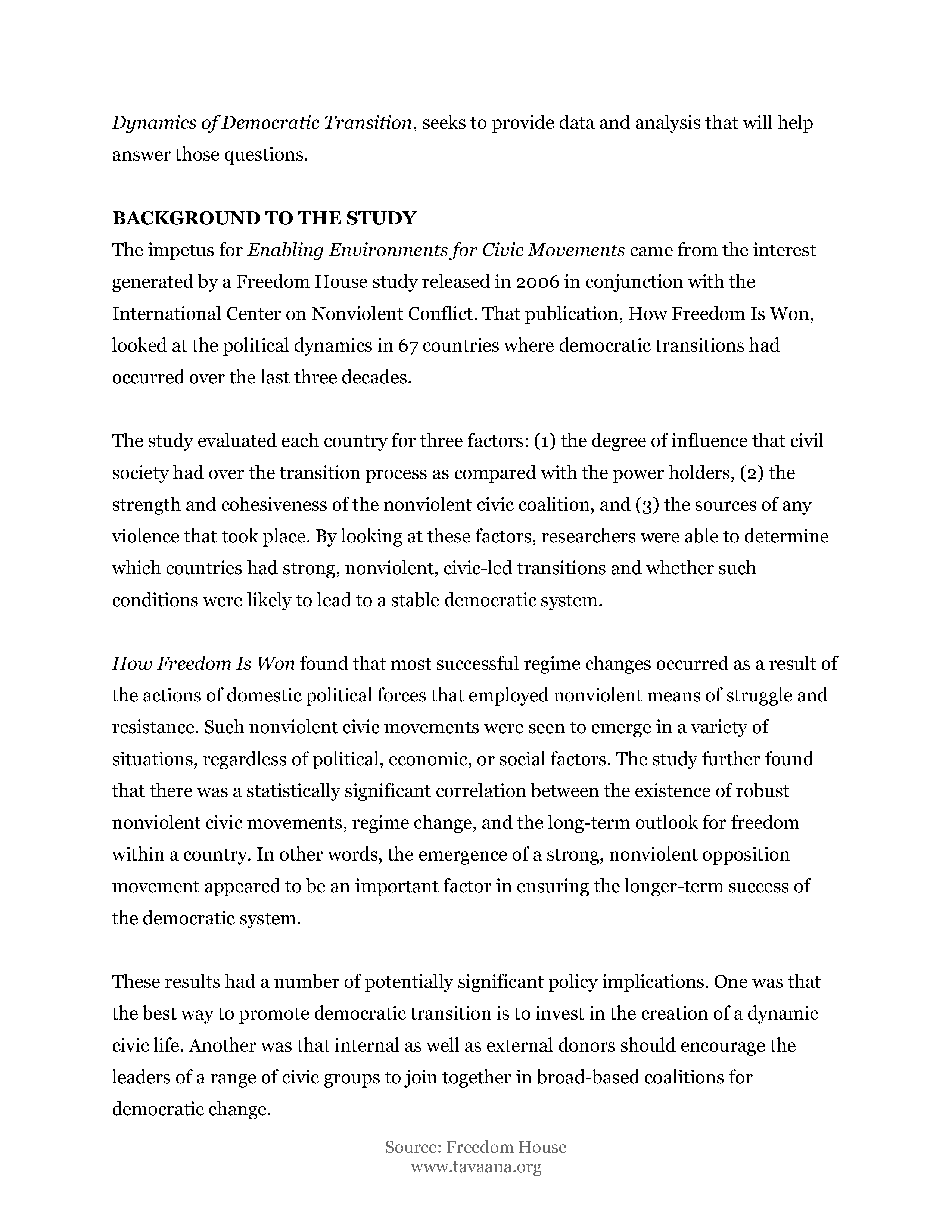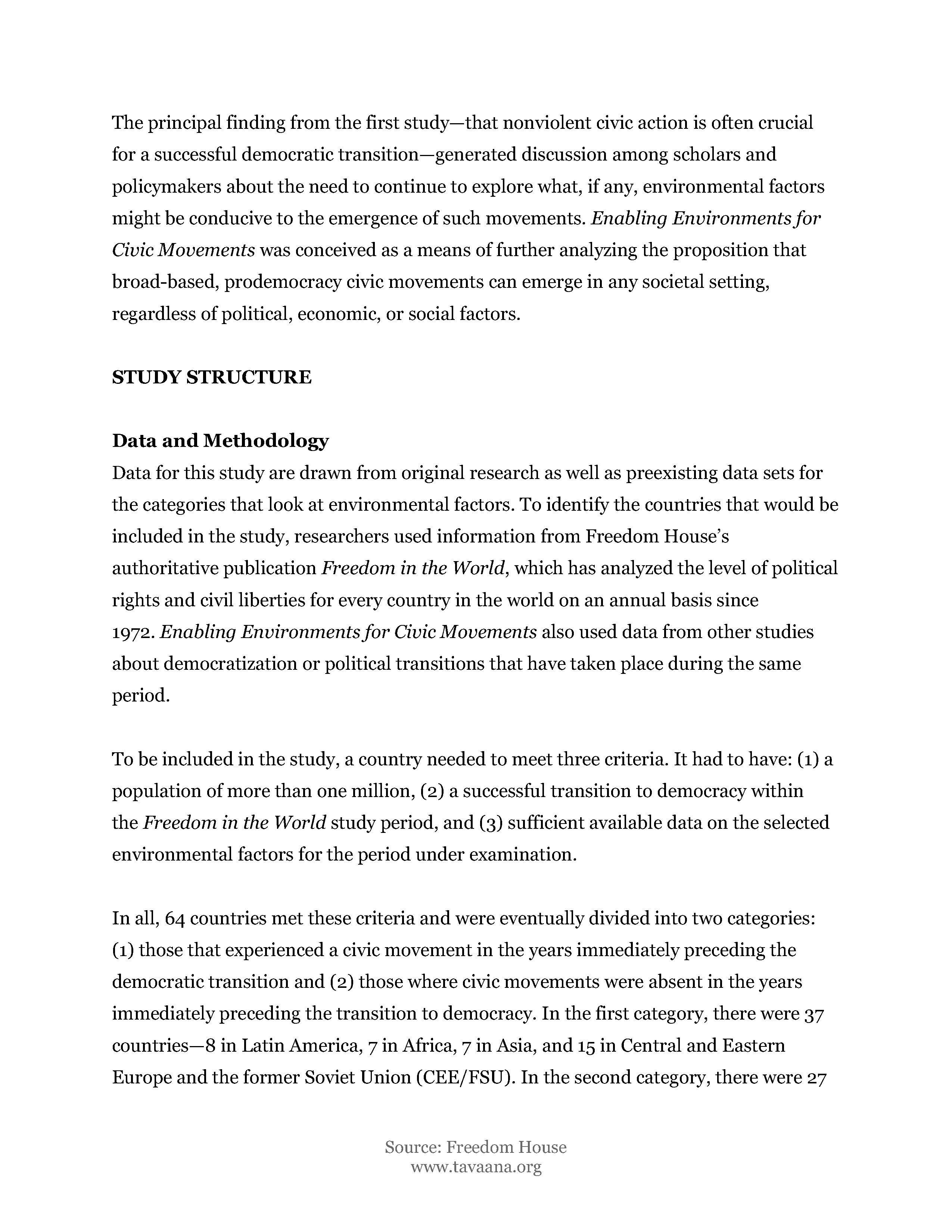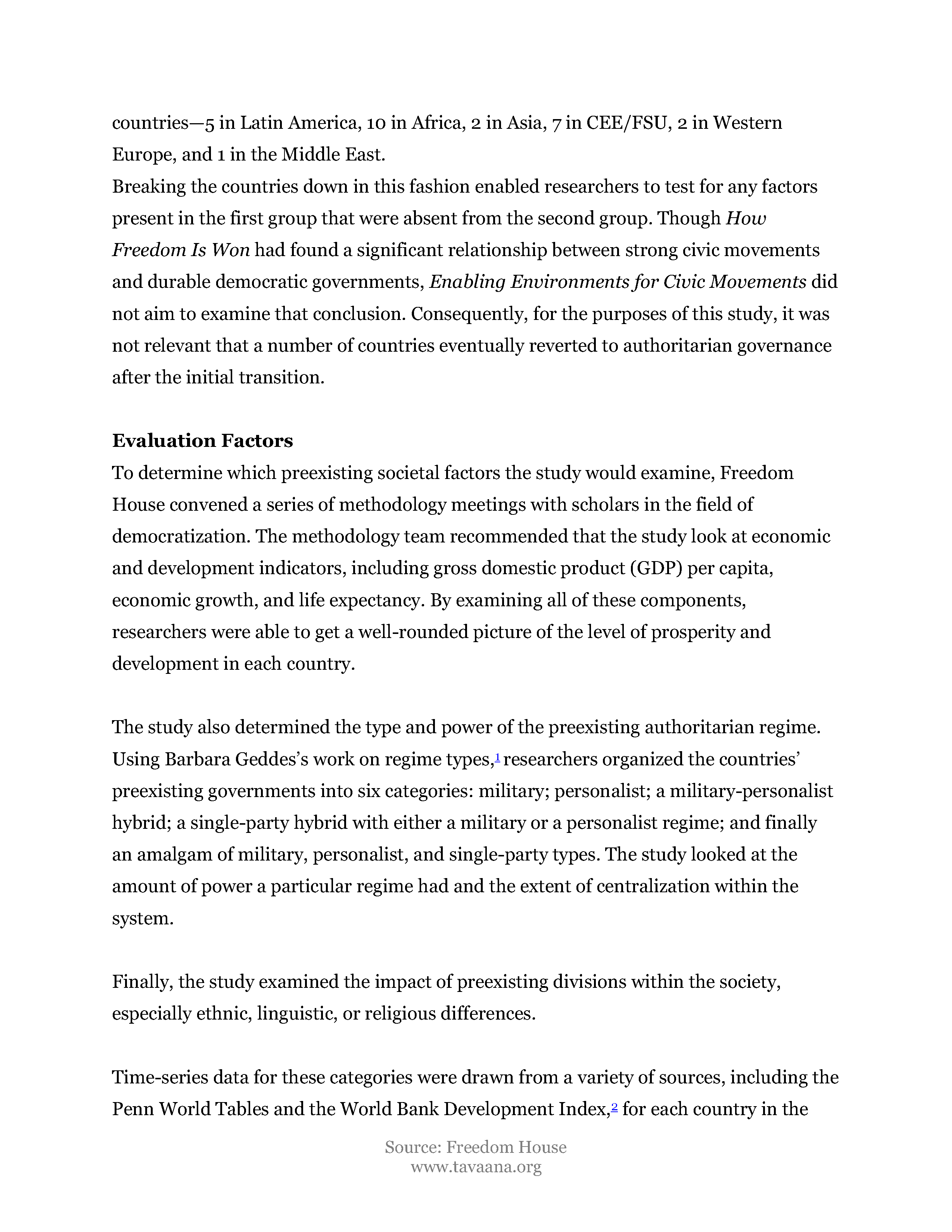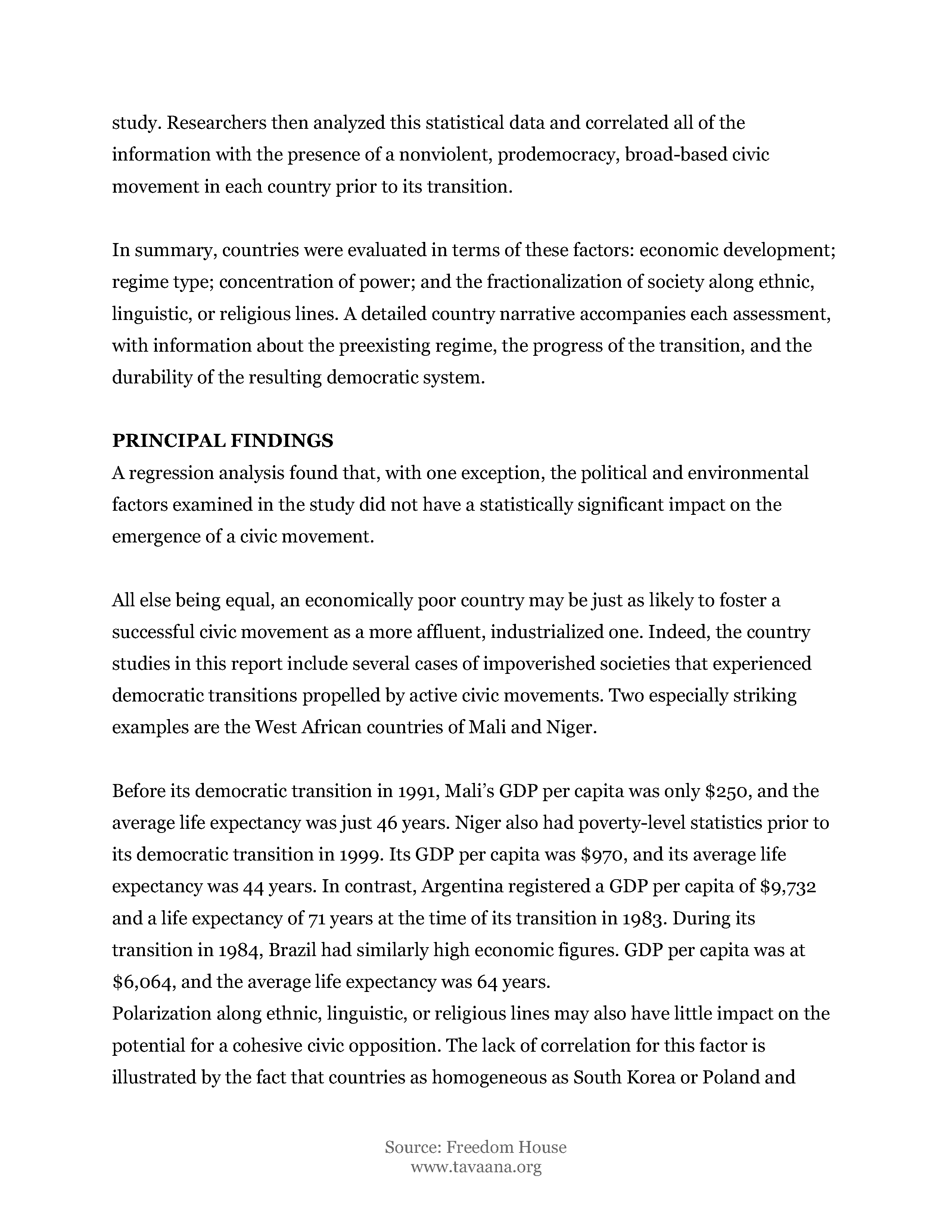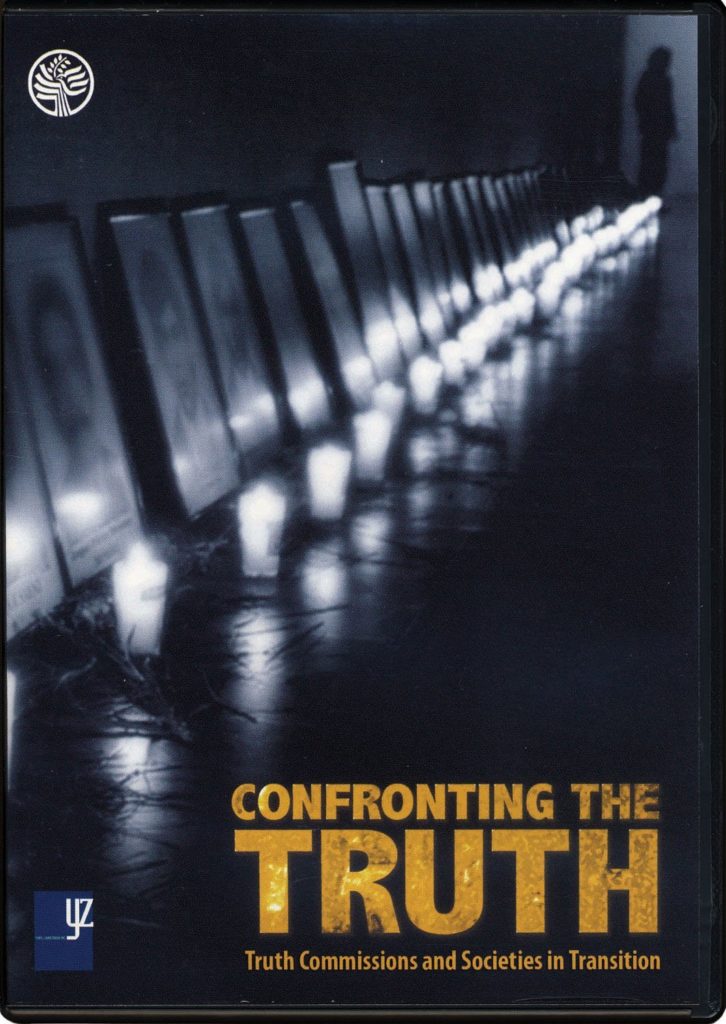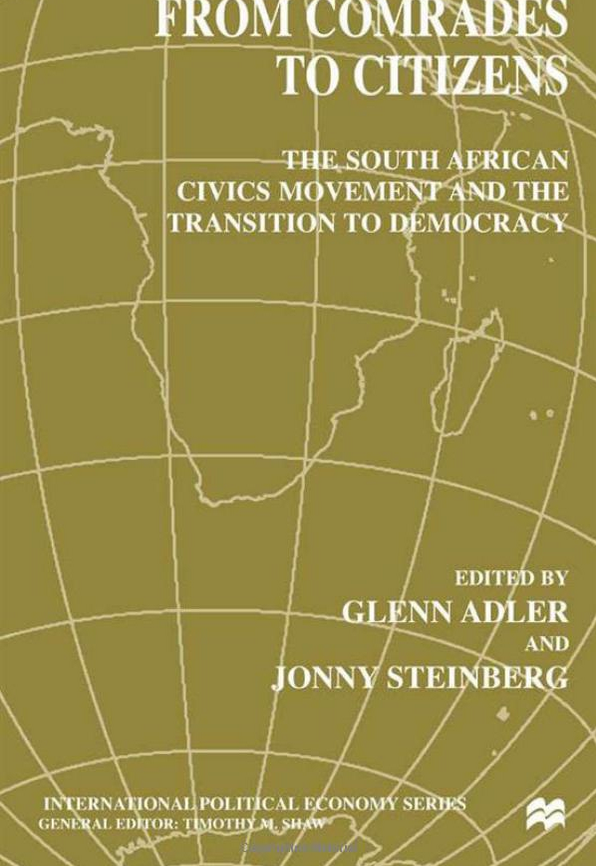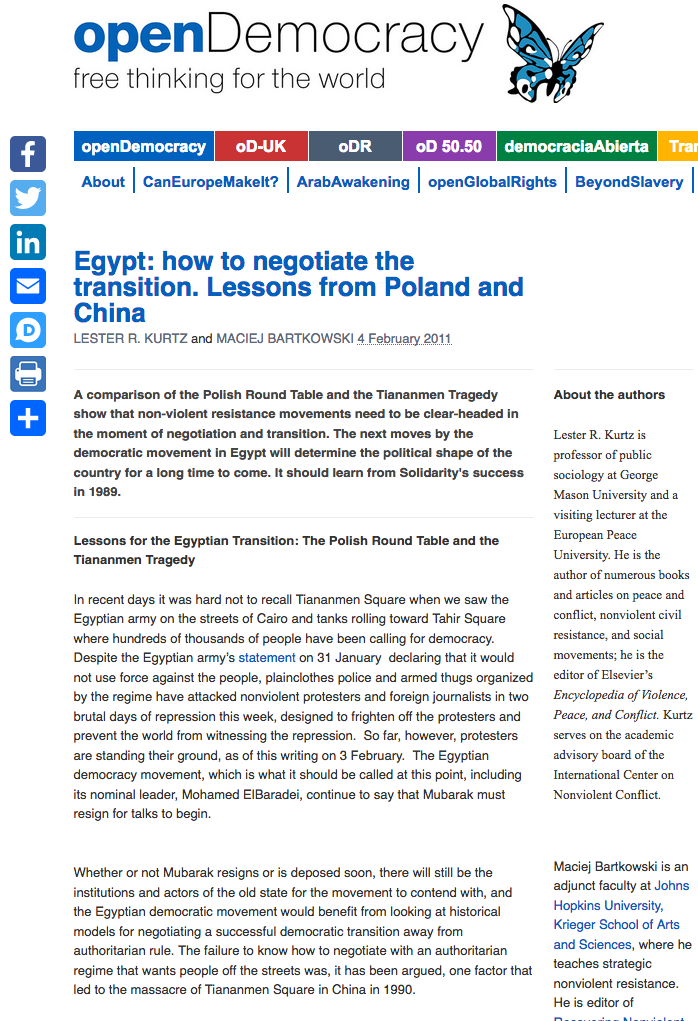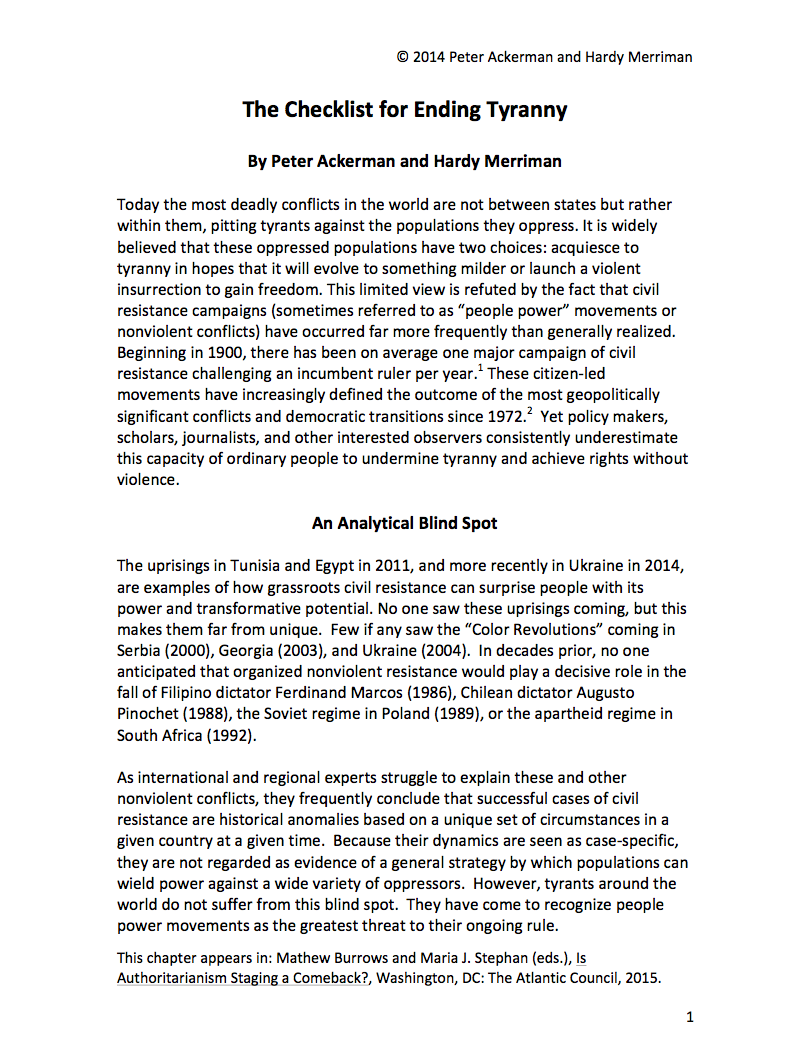Enabling Environments for Civic Movements and the Dynamics of Democratic Transition
This study, “Enabling Environments for Civic Movements and the Dynamics of Democratic Transition”, looks at the question of whether there are political or socioeconomic factors that inhibit or facilitate the development of civil resistance movements committed to the democratic, nonviolent transformation of authoritarian societies.
An earlier study sponsored jointly by Freedom House and the International Center for Nonviolent Conflict, “How Freedom Is Won”, found that an overwhelming number of transitions to democracy in the latter part of the twentieth century featured civil resistance, including strikes, civil disobedience, boycotts, and mass protests. This study, Enabling Environments for Civic Movements, carries the original study a step further in laying out a case for what Peter Ackerman has called “the primacy of skills over conditions” in determining the outcome of a conflict driven by civil resistance.
The study suggests that high degrees of centralization correlate positively with the emergence of a robust civic movement with the potential to challenge regime authority. The reverse also appears to be true: the greater the degree of government decentralization, the less likely it is that a successful movement of civic mobilization will arise. The study’s most important policy conclusion is that the growth of strong civic movements committed to tactics of nonviolent resistance can play the key role in bringing about democratic transformations in authoritarian settings. Policies that contribute to the strength of movements of civic mobilization may make the difference in the struggle to replace dictatorship with a democratic order.
Short, country-specific reports are also available here for the following countries: Albania, Argentina, Armenia, Azerbaijan, Bangladesh, Belarus, Benin, Bolivia, Brazil, Bulgaria, Cambodia, Central African Republic, Chile, Croatia, Czech Republic, Ecuador, El Salvador, Estonia, Georgia and Ghana.
Freedom House — Washington D.C., July 2008
Study (Principal) Researcher: Eleanor Marchant
Advisors: Adrian Karatnycky, Arch Puddington and Christopher Walker

